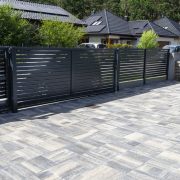Building a deck can be a rewarding project that enhances your outdoor space. However, the challenge often lies in balancing your budget with your desired quality. If you’re considering building a deck, whether a simple platform or an elaborate multi-level structure, weighing both costs and quality is essential. Here’s how you can achieve that balance while ending up with a space you’ll love.
Understanding Your Needs and Wants
Before you start designing or purchasing materials, take a step back to determine what you truly need versus what you want. Ask yourself:
-
How do I plan to use the deck? Is it for hosting large gatherings or for quiet evenings enjoying the view?
-
What is my budget, and how flexible is it?
-
Do I have any specific materials in mind?
By clarifying these points, you can focus on the essentials while potentially leaving room for a few of those “wants” without breaking the bank.
Research and Plan Thoroughly
Once you clearly understand your needs and wants, dedicate time to thorough research and planning. Consider aspects such as:
-
Deck size and design
-
Materials suitable for your climate
-
Local zoning laws and permits
Having a comprehensive plan will help you anticipate costs and avoid unexpected expenses. You can also look up example projects to inspire your design and ensure your expectations align with what’s feasible within your budget.
Consider Material Alternatives
While traditional wood decks are a classic choice, they can be costly and require significant maintenance. Consider alternative materials like composite decking, which offers the look of wood with fewer maintenance needs. Composite materials might be pricier upfront, but they can save you money in the long run by reducing the need for repairs and upkeep.
Choosing Affordable, Quality Materials
Material choice is crucial in balancing budget and quality. Here are some options to consider:
-
Pressure-Treated Wood: This is a budget-friendly option resistant to insects and decay. It’s readily available and can be stained or painted to your preference.
-
Composite Decking: Although more expensive initially, this material is durable, low-maintenance, and available in a variety of colors and designs.
-
Reclaimed Wood: An environmentally friendly option, reclaimed wood can offer unique character and charm at a lower price.
Balance is key here. Investigate each material’s pros and cons, longevity, and maintenance needs to see which best suits your situation.
Get Professional Advice Where Necessary
If you’re not experienced in construction, it might be worth consulting with a professional. While this adds an immediate cost, it can prevent costly mistakes in the future. Professionals can often give insight into efficient designs, cost-saving materials, and compliance with local building codes.
DIY or Professional Builder
The decision between building the deck yourself or hiring a contractor can significantly affect your budget. DIY projects can be more affordable but demand time, effort, and a certain skill level.
Pros and Cons of DIY
-
Pros: Cost savings on labor and the satisfaction of creating something yourself.
-
Cons: Requires time, and skilled labor, and proper knowledge is required to avoid mistakes or potential danger.
Hiring a Professional
While hiring a professional may seem more expensive initially, it can save you time and stress. They possess the skills and expertise to deliver high-quality results efficiently. This fence company can help in evaluating the intricacies of construction that might not be apparent to an untrained eye.
Cost-Saving Tips
Here are several tips to keep costs down without skimping on quality:
-
Long-Term Planning: Even if your budget is limited initially, you can plan for future add-ons like a gazebo, lighting, or additional levels.
-
Shop Smart: Look for sales, and consider purchasing materials in bulk for a discount.
-
Reused Materials: Consider using recycled or reclaimed materials for a unique and environmentally friendly appearance.
-
Simple Design: Opt for a simple shape and design, which often requires less material and labor.
Maintain to Extend Life
Once your deck is built, regular maintenance will help extend its life and maintain its appearance. Here are some maintenance tips:
-
Regularly clean the surface to prevent mold and mildew.
-
Seal and stain wooden decks to protect them from the elements.
-
Inspect for loose boards and nails regularly, especially after harsh weather conditions.
By maintaining your deck correctly, you can avoid costly repairs or replacements, ensuring your investment stands the test of time.
Comparing Deck and Fence Installations
It’s also worthwhile to compare deck building with fence installations if your project involves both. For instance, a project involving both items might require more coordination. Sometimes, you can consult a chain link fence company Knoxville for your fencing needs, which can free up your budget and time to focus on the deck aspect of the project.
Environmental Considerations
Considering the environment when building your deck can also result in cost savings. Opt for sustainable materials such as bamboo or certified wood. These might offer tax benefits in certain regions, so look into local incentives. Furthermore, environmentally friendly materials often last longer and require less maintenance, aiding your budget in the long run.
Reap the Benefits
Incorporating greenery, such as planters or roofing sections, can improve insulation and aesthetics. Find them here to further understand what they have in store to offer regarding innovative materials and designs that support environmental consciousness while also adding value to your outdoor space.
Final Thoughts
Balancing a budget with the quality of deck construction can be a smooth endeavor. By understanding your wants and needs, researching material options, and considering the benefits of professional advice, you can create a space that meets your expectations and financial boundaries. The key is to plan thoroughly, prioritize necessities over luxuries, and explore budgeting avenues that align with your goals. Building your deck might be an investment, but with proper planning and thoughtful choices, it will be a haven you’ll cherish for years.



